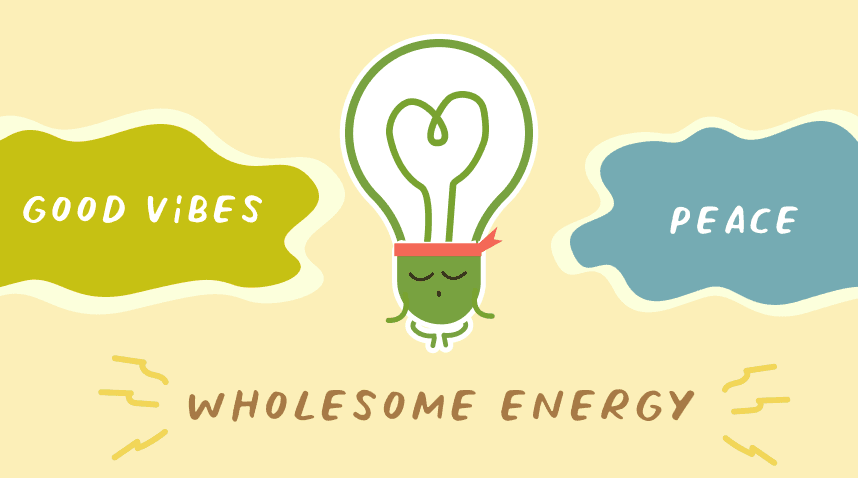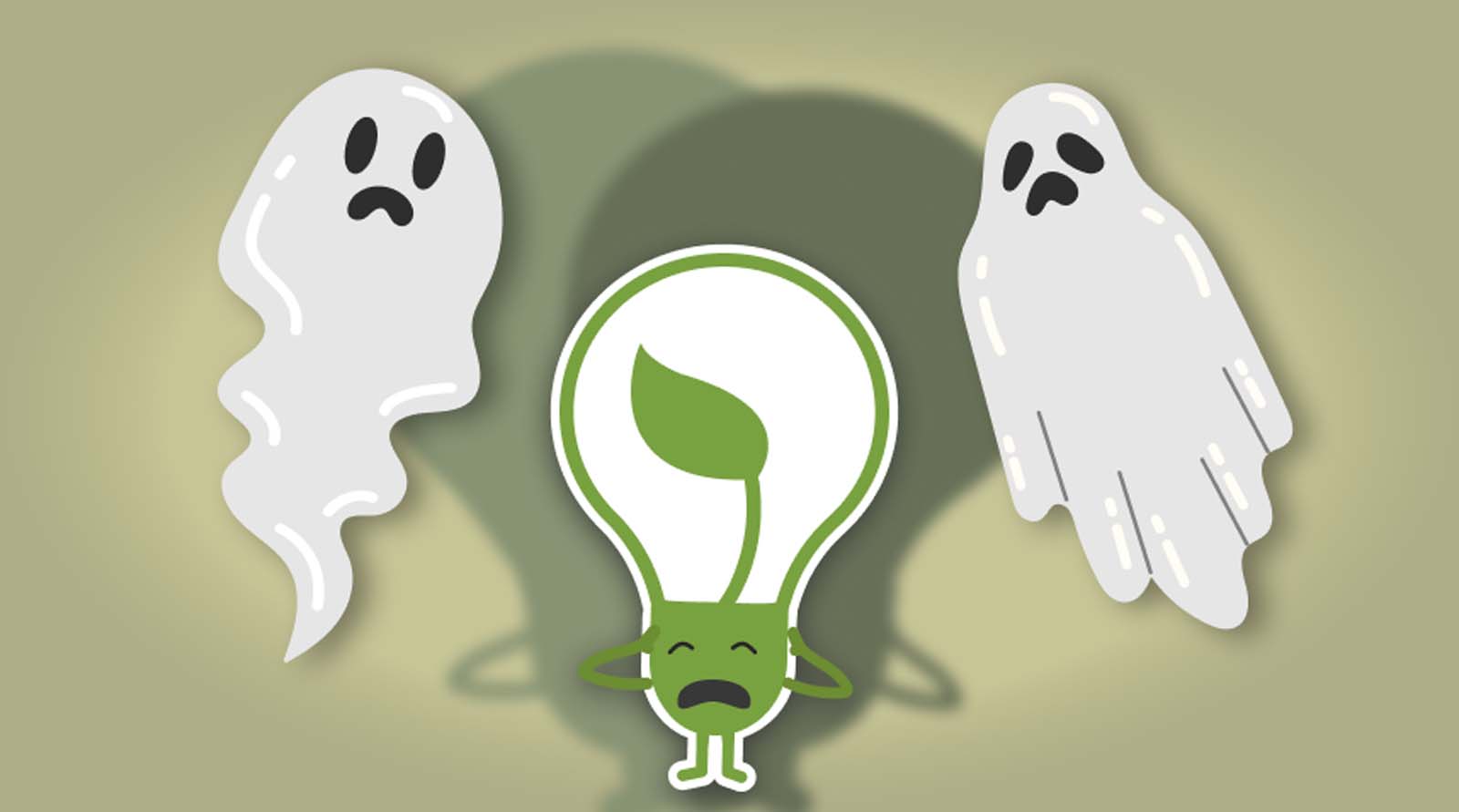Ghost Month Series: This series explores different angles of the 7th Lunar Month, also known as the Ghost Month. Festivals, Cultures, and Religions often mix together in one place, offering space for different interpretations. We, like you, are keen to explore more. Discern what is helpful to your practice and discard whatever is not.
TLDR: Cultivating a harmless and blameless way of life gives you internal confidence in the face of fear. We can also try to practice compassion towards supernatural beings, in place of fear.
If you clicked on this article because you read the title and thought “that’s me!” – there is no shame. I feel like most people have some level of fear around the supernatural – even those who claim to believe in scientific evidence, who say they don’t believe in ghosts. Put anyone in a graveyard in the middle of the night and all rationality goes out the window!
I’m nowhere near the level of Ajahn Chah who literally overcame fear itself, but I’ll try to share some of my own tips for dealing with fear of ghosts.
Sīla Protects You
When I was a kid, I was definitely afraid of ghosts.
When I told my mum this, she said something like: “If you never do anything bad, why would they need to come after you?” She always said this with such conviction and fearlessness.
Her statement was a teaching in sīla (morality). It’s the idea that when we take care of our speech and conduct, we offer the gifts of harmlessness and fearlessness to ‘limitless numbers of beings’. In return, we gain a share in this freedom from harm and danger (see AN 8.39).
I once heard a story from my Ajahn, a monk from the Thai forest tradition, who said that one shouldn’t practice in the forest if one’s sīla is not well-kept. He told of an incident where an Ajahn brought a group of monks to stay in the forest for a few days. In the end, all the monks made it out except two who had died during the journey. When asked why this happened, the Ajahn replied that it was because they did not have good sīla.
In case you didn’t know, the Thai forest Ajahns are super hardcore. They live in deep forests with nothing material for protection, putting their lives on the line to do the practice – that’s the depth of their faith in the Buddha and his teachings.
That may have made you go ‘sure anot’, but I resonate with it because I’ve seen the impact of practising sīla in my life. When I was younger, I had a lot of fear around the idea of supernatural beings. But I found that as I grew up and started practising Dhamma, that fear began to reduce and a sense of confidence began to grow. In situations where fear arises (e.g. alone in my apartment at night, in a dark forest on a retreat), I recollect my sīla. Knowing that I have done my best to keep my precepts well and to live a wholesome life helps to soothe that fear.
Since I consistently put in effort not to harm other beings, I have no reason to be harmed or to fear being harmed. It’s reassuring, and not in a ‘wishful thinking’ kind of way – it’s a sense of real confidence in my actions and their results.
Good Vibes Are Important

I believe that cultivating wholesomeness creates wholesome energy. OK, this may sound a bit like hippie flower child stuff but hear me out.
Have you ever been to a monastery or church and the energy there just feels serene and safe? I think it’s because the activities and intentions carried out there are peaceful and wholesome, and this translates into the energy of the place.
In 2019, I stayed at Wat Buddha Dhamma (WBD) in New South Wales for a retreat. This monastery was located deep in the forest of a national park and there were times where I felt fear walking from the meditation hall back to my hut in the dark of the night, with only my torch and the moon for some light. But I realized that this fear was all in my mind; there were probably no beings around that would harm me. That’s because I could feel that the energy of the monastery was light and wholesome, given that all activities there were aimed towards peace.
I think wholesome energy is important because energy attracts and influences, a bit like how we attract or gravitate towards like-minded people. If one constantly aims to cultivate wholesomeness in thought, speech and conduct, this is bound to permeate one’s surroundings. A good example is a friend of mine who has had many (sometimes aggressive) encounters with ghosts throughout their life.
Recently, they noticed that since performing more acts of generosity and wholesomeness, they haven’t been visited by such beings lately.
Perhaps a good landmark example of the importance of “good vibes” can be found in the teachings of the Buddha: In the time of the Buddha, there was a group of monks who were disturbed by certain beings when they tried meditating in a particular forest. When they went to the Buddha and informed him of this, he taught them the Discourse on Loving-Kindness (Metta Sutta) for their protection.
The monks then went back to the forest, practised this instruction, and radiated thoughts of loving-kindness, so much so that the beings were subdued by this and allowed them to meditate in peace.
What are Ghosts Really?
I think movies and stories throughout human history have created a universal perception of ghosts as scary beings that pop up out of nowhere and want to kill you for some reason. But actually, what is a ghost?
The Hungry Ghost Festival is celebrated every July of the Lunar calendar in Chinese culture. It is believed that during this time, ghosts are allowed to come to earth for a visit… In my mind, the concept that ghosts wait all year to ‘come out’ only to hang around for one month and then obediently ‘go back’ to where they came from is pretty funny. I think ghosts are everywhere all the time since they’re just another type of being in one of the 31 planes of existence according to Buddhist teachings.
They are born into this lower realm because of past unwholesome deeds or the lack of wholesome deeds. They are in a state of constant deprivation, equivalent to beggars or homeless people in the human realm who need help because they don’t have enough to fend for themselves.
Based on the principle of rebirth, these beings could even be people we knew, such as departed relatives and friends, who may come to us looking for help.
If we keep this in mind, then we don’t need to be afraid – what they need from us is compassion and merit.
I have another friend who often has supernatural encounters at home. It’s come to a point where we no longer speak about these beings in a taboo or fearful way; they are like any other being in need of help. Following the Buddha’s advice, my friend makes offerings on behalf of them and shares the merit with them as an act of generosity and compassion.
The Bottom Line
If you took nothing else away from this article, just remember this: continue cultivating wholesome qualities and abandoning unwholesome qualities, and trust in the strength of that for protection.
Wise Steps:
- Recollect the qualities of the Buddha, Dhamma and Sangha. Personally, recollecting the qualities of the Buddha helps because the purity of the Buddha feels so powerful and awe-inspiring that it makes this fear or the object of fear seem mundane and trivial.
- Mindfully watch the fear in your body. For me, fear arises in the heart space like a sharp, cold sensation. Centring your attention on bodily sensations can help you focus on the reality of the fear rather than the narratives in your mind being fueled by it.
- Recite the Metta Sutta and emit thoughts of loving-kindness.


